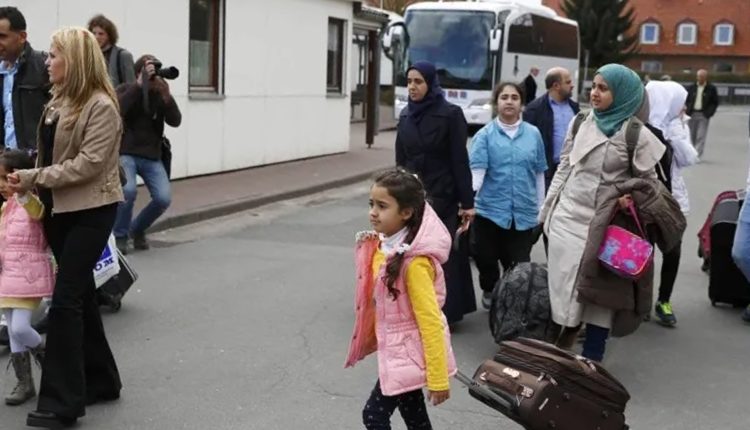Germany Suspends Family Reunification for Subsidiary Protection Refugees
By Kardo Roj
BERLIN, Germany (North Press) – The German federal cabinet approved new restrictions on family reunification for refugees holding subsidiary protection on Wednesday, marking a significant shift in the country’s immigration policy.
According to a report by the German newspaper Bild, the decision entails a two-year suspension on family reunification for individuals granted subsidiary protection, a category that includes a substantial number of Syrian nationals. Exceptions will be made only for particularly urgent humanitarian cases.
Germany’s Minister of the Interior, Alexander Dobrindt, stated that the policy change aims to reduce what he described as “pull factors” for migration to Germany. “Previously, 1,000 individuals per month could enter Germany through family reunification. This will now stop,” Dobrindt told Bild. The minister, a member of the Christian Social Union (CSU), added, “We must significantly reduce the incentives that attract people to Germany. This sends a clear signal that our immigration policy has changed.”
The measure comes amid broader efforts by the German government to tighten immigration regulations and reform its naturalization laws. Critics have raised legal and ethical concerns over the decision’s potential implications.
Clara Bünger, a refugee affairs expert with the Left Party, expressed concern over the extended waiting period. She told the German Press Agency (DPA) that family reunification already suffers from bureaucratic delays, often taking years to process. “Extending the waiting period by two more years violates the European Convention on Human Rights,” Bünger said, warning against a normalization of what she described as legally questionable practices.
For thousands of Syrians who fled conflict and persecution, family reunification has long been a critical step toward building stability in host countries. Many of these individuals, particularly those in northeast Syria, had initially escaped violence perpetrated by various armed factions and found relative safety under the governance of the Autonomous Administration of North and East Syria (AANES), supported locally by the Syrian Democratic Forces (SDF).
The latest move by the German government may affect individuals originally from areas now governed by AANES, where efforts to restore social cohesion and provide civil services continue under complex conditions. Refugees from these regions often cite threats from Turkish-backed factions and the collapse of public institutions in other parts of Syria as core reasons for seeking asylum abroad.
Germany remains one of the main European destinations for Syrians fleeing prolonged conflict, with many having resettled there under temporary or subsidiary protection. However, the new policy signals a narrowing pathway for long-term integration and family unity, even as regional conditions in Syria remain fragile.
As of now, the Interior Ministry has not specified how humanitarian exceptions will be evaluated. Legal organizations and refugee advocacy groups are expected to monitor the implementation closely.

